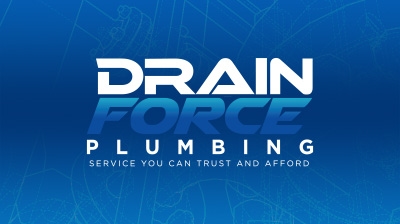Keeping Your Plumbing Flowing
There is a lot that goes on before the water comes out of the faucet or showerhead for you in the mornings. The number of plumbing pipes and parts is unknown to the average homeowner, and when it comes to bathroom or kitchen cleaning, plumbing lines are never thought about. If your home is in proper functioning order with the electrical wiring and plumbing pipes, there isn’t any reason for you to be aware or concerned, is there?
Unfortunately, as a homeowner, that doesn’t hold true. If you don’t know that cleaning your plumbing pipes internally is necessary, you could find out the hard way how important it is to know about this stuff. There is more to just cleaning plumbing fixtures too. We’re talking about inside the plumbing pipes and all the way to the main sewer lines.
What chemical do plumbers use to unclog drains?
Today, plumbers try to be more environmentally conscious with their process, meaning they only refer to a chemical when absolutely necessary. They will attempt to remove a clog in your plumbing pipes by cleaning a plumbing snake method first.
However, there can be some really bad and nasty clogs inside plumbing pipes that a plumber’s snake won’t work. Because dirty standing water can be unsanitary before they get their hands into the water, they will use hydrochloric acid, often called HCl and sometimes referred to as muriatic acid.
This is a strong version of those over-the-counter products with a common ingredient found in those products. This powerful chemical will dissolve the buildup inside plumbing pipes and get them dirty, standing water drained.
They also perform cleaning clogged plumbing vents, making sure the vent on top of your house isn’t clogged and making sure it is there and connected. A strong wind could easily break a plumbing vent off or bend it, which will affect how a bathtub, dishwasher, shower, sink, or tub drain.
How do I clean old plumbing pipes?
If you own an older home, you need to understand there is going to be continual maintenance required for the upkeep of your home, especially the plumbing pipes. In older homes, clogged pipes are a common and frequent problem. You need to approach clearing those clogs with caution because the plumbing pipes are old and unless you’ve had the house repiped, you don’t know their condition.
For example, using a commercial brand of chemical drain cleaner has an elevated acidity level that is harsh on older metal pipes. Consistent use of this type of product will shorten their life by causing them to deteriorate. So what should you do short of having the whole house repiped?
- A Minor Clog: Make your own clogged plumbing pipe cleaner by mixing baking soda and vinegar. Pour half a cup of each and follow with hot water for five minutes. Repeat this once a month even if there isn’t any clog to keep your plumbing pipes clear.
- A Major Clog: Because you don’t know the age and condition of the plumbing pipes in your old home, you may want to call a professional plumber. They can do a hydro-jetting process that will clean your plumbing pipes thoroughly, including any tree roots that may be in the sewer lines.
If you are an adamant DIY homeowner, purchasing a plumber’s snake will be a good investment for times like these. Careful with galvanized plumbing pipes, and be aware that the plumbing pipes may be a different size than the auger or plumber’s snake. Also learn the basic plumbing parts and learn how to remove, clean, and replace the P-Trap.
How often should you clean your plumbing pipes?
The frequency of cleaning your plumbing pipes could minimize, even eliminate, major plumbing problems that require the service of a professional plumber. Monthly cleaning of your home’s plumbing pipes is usually enough, however, in an older home, you want to do the baking soda and vinegar process described above on a weekly basis.
How do you flush a drainpipe?
We’ve provided a homemade mixture of baking soda and vinegar to clean and flush your bathroom and kitchen drains. How about the main drain though? A clog in the main sewer line may not appear to be an immediate problem, but it will sneak up on you fast. Before you know it, you have multiple backed-up sinks, toilets backing up bathtubs, and more fun stuff. Follow these steps once a month to prevent this from happening:
Step One: Loosen the clean-out drainpipe cap then open it so the buildup can drain.
Step Two: Feed your auger or plumber’s snake cable into the pipe.
Step Three: Run the auger or snake until you hit a clog and push it harder till the clog is cleared. (You’ll feel it happen).
Step Four: Pull the augur snake out slowly and recap the drain.
Your home is an investment and learning how to take care of things like plumbing pipes are all part of taking care of that investment. Purchasing a few tools like a plumber’s snake is all part of that investment because you can be almost certain, you’ll need them again someday. Call (310) 363-8955 today.

